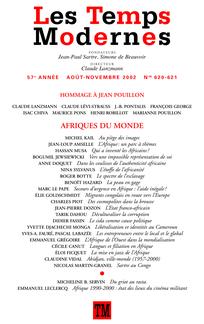[AR] التشكيلي السوداني حسن موسى خارج "الزنزانات الفنية" | INDEPENDENT ARABIA
June 2020
"على عكس حاله في الغرب، فإن التشكيلي السوداني د. حسن موسى ليس اسماً معروفاً في معظم رقاع العالم العربي. وهذا على الرغم من أنه ثالثة الأثافي - مع إبراهيم الصلحي والراحل أحمد شبرين – في زمرة سفراء الثقافة التشكيلية السودانية الذين نفذوا إلى الساحة الدولية.[...]".
…Read the full article by Salah Ahmed here
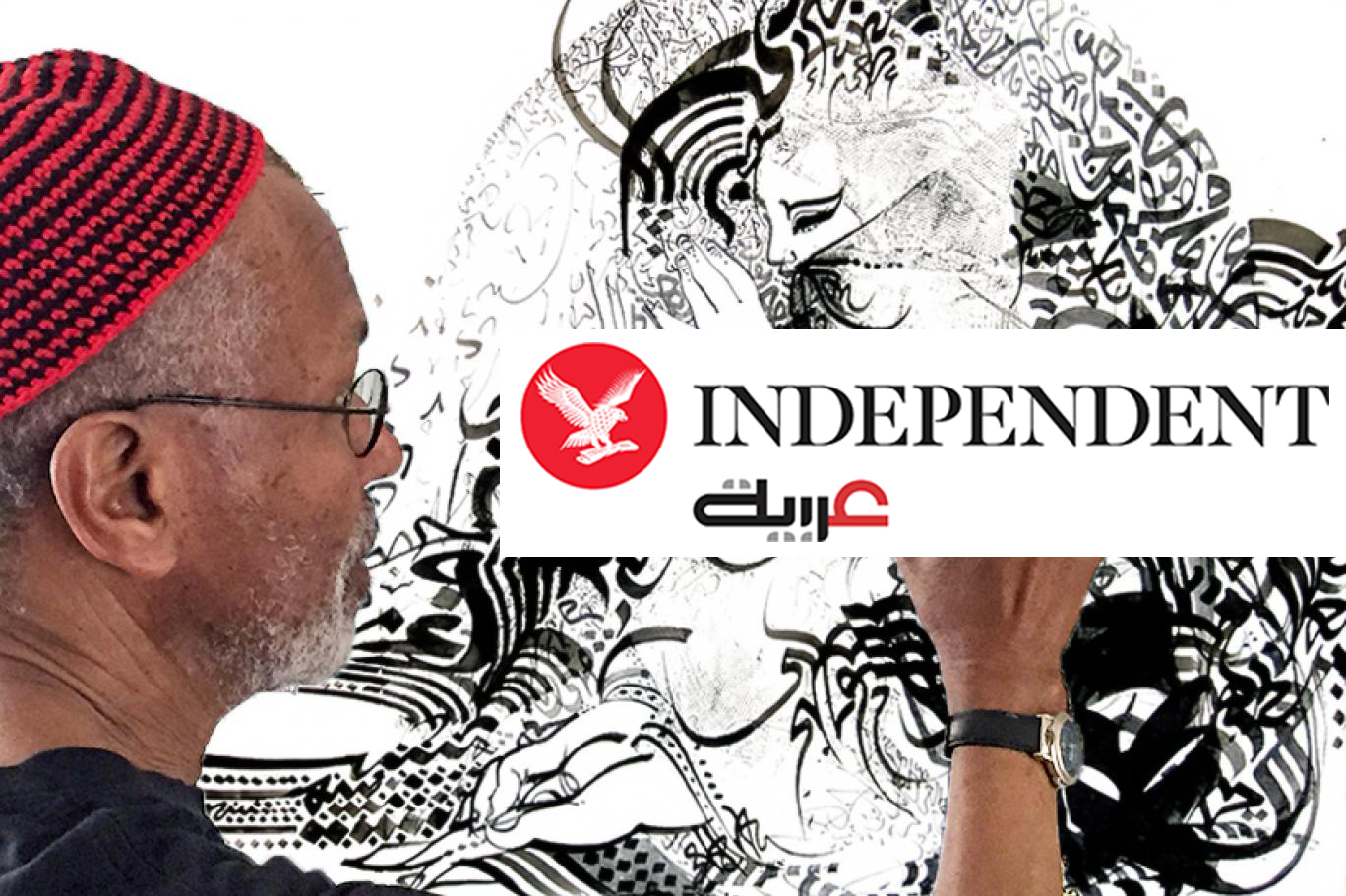
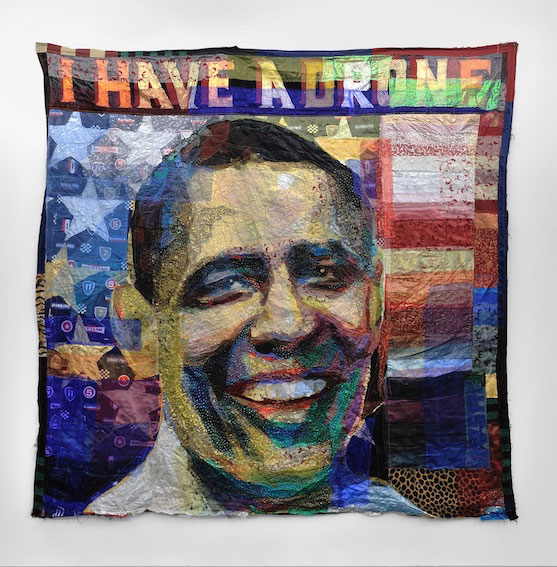
[FR] Hassan Musa en découd avec les images | LE MONDE
Nov. 17, 2015
"Vladimir Poutine accueille le visiteur d'un oeil mauvais. Impossible de ne pas le voir: son portrait, fait pour l'essentiel de tissus aux couleurs claires, découpés et cousus, mesure plus de deux mètre de haut [...]
Read the full article by Philippe Dagen here…
[FR] Hassan Musa, peintre du monde | DIACRITIK
Nov. 4, 2015
"Dans le tableau intitulé Il n’y aura plus de nouvelles annonciations, Musa reprend la forme d’une croix christique et met en scène des anges dans un jardin. Plusieurs couples d’anges, ou d’anges et humain(e)s, sont en train d’avoir des rapports sexuels. Sur l’axe central vertical est représenté par trois fois un ange agenouillé qui, étant donné le thème de l’Annonciation, évoque l’ange Gabriel mais en train d’enfiler un préservatif sur son sexe en érection selon les instructions d’un mode d’emploi rappelé en toutes lettres : « retirer soigneusement le préservatif de son emballage », « le préservatif doit être placé sur le pénis en érection », [...]".
Read the full article by Jean-Philippe Cazier here…
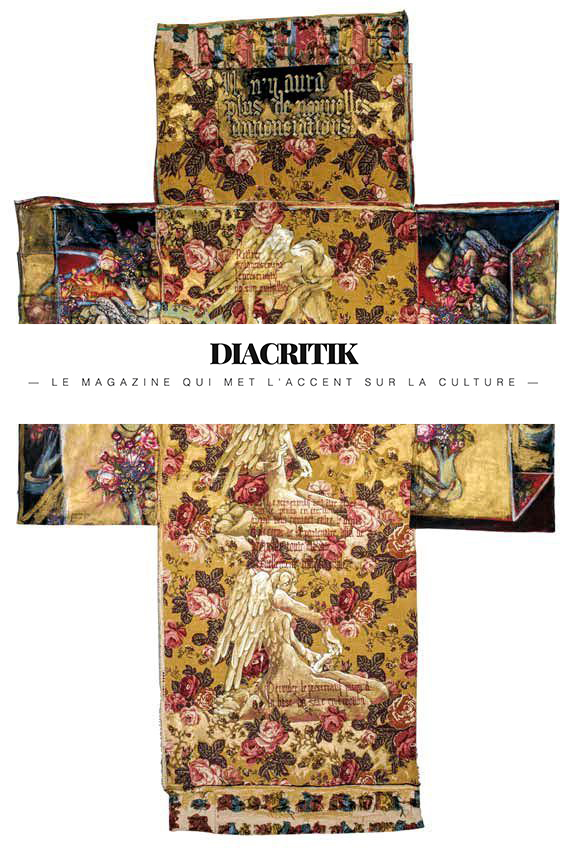
[EN] Eye for an eye, image for an image | NKA
Fall 2014
"Recently you sent me a text that raised the perpetual question of the African artist who wants to achieve “international” status, who is modernist and fears being relegated to a regionalist category. You dismissed me, saying that I situate myself in a sort of duality between modernity and obscurantism. I do take a stance in defense of identities [...]".
Read the full conversation with Jean-Hubert Martin here…
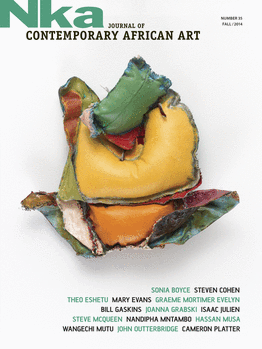
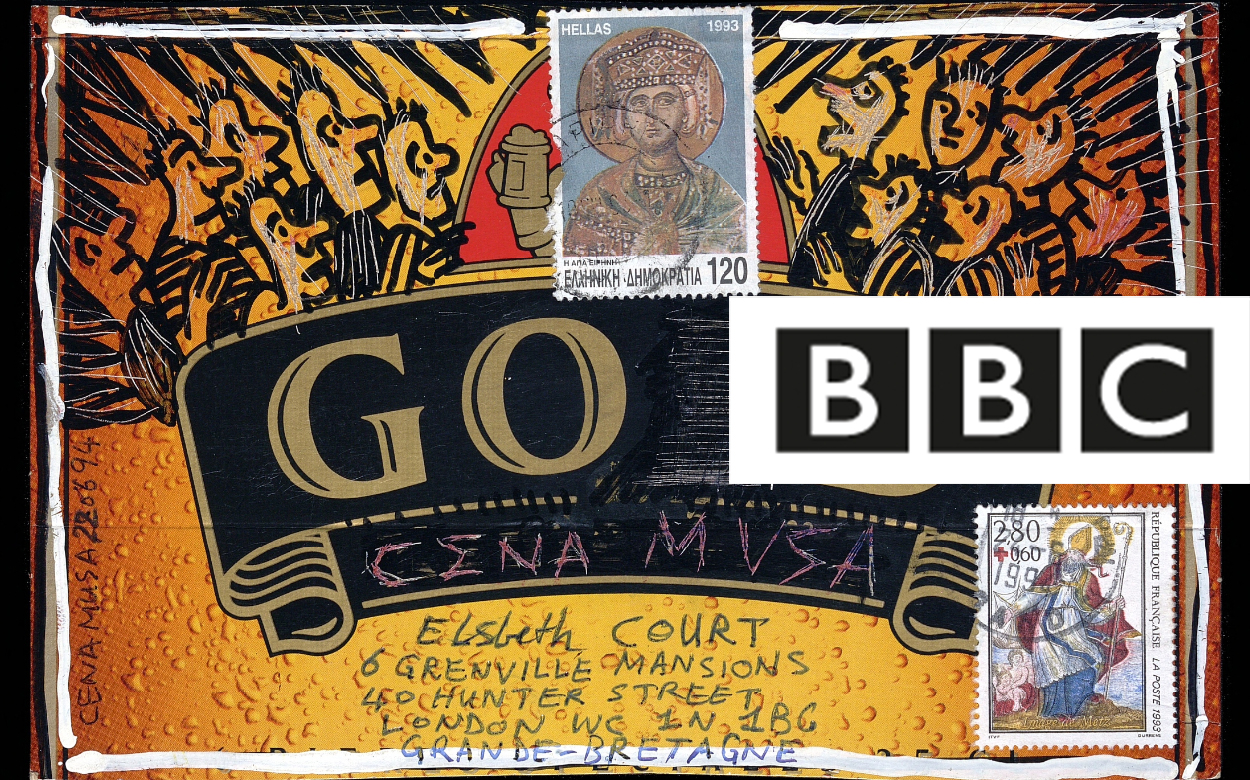
[EN] Sudan's Hassan Musa on how he shares art on envelopes | BBC NEWS
Jan. 22, 2014
"Besides his work on fabric and ink on paper depictions of 20th Century icons in Arabic calligraphy, part of the exhibition features hand-decorated envelopes that he sent to his curator, some of them beautiful, some of them funny, but all of them eye-catching. [...]"
Listen to the full audio interview here…
[FR] Soudan: le fabuleux butin de Hassan Musa | JEUNE AFRIQUE
July 4. 2012
"Créant des ponts entre Occident, Afrique et Orient, le Soudanais fait de l’histoire de l’humanité un précieux trésor dans lequel il puise sans vergogne. Rencontre avec Hassan Musa, un homme libre qui se joue des icônes. [...]".
Read the full article by Nicolas Michel here…
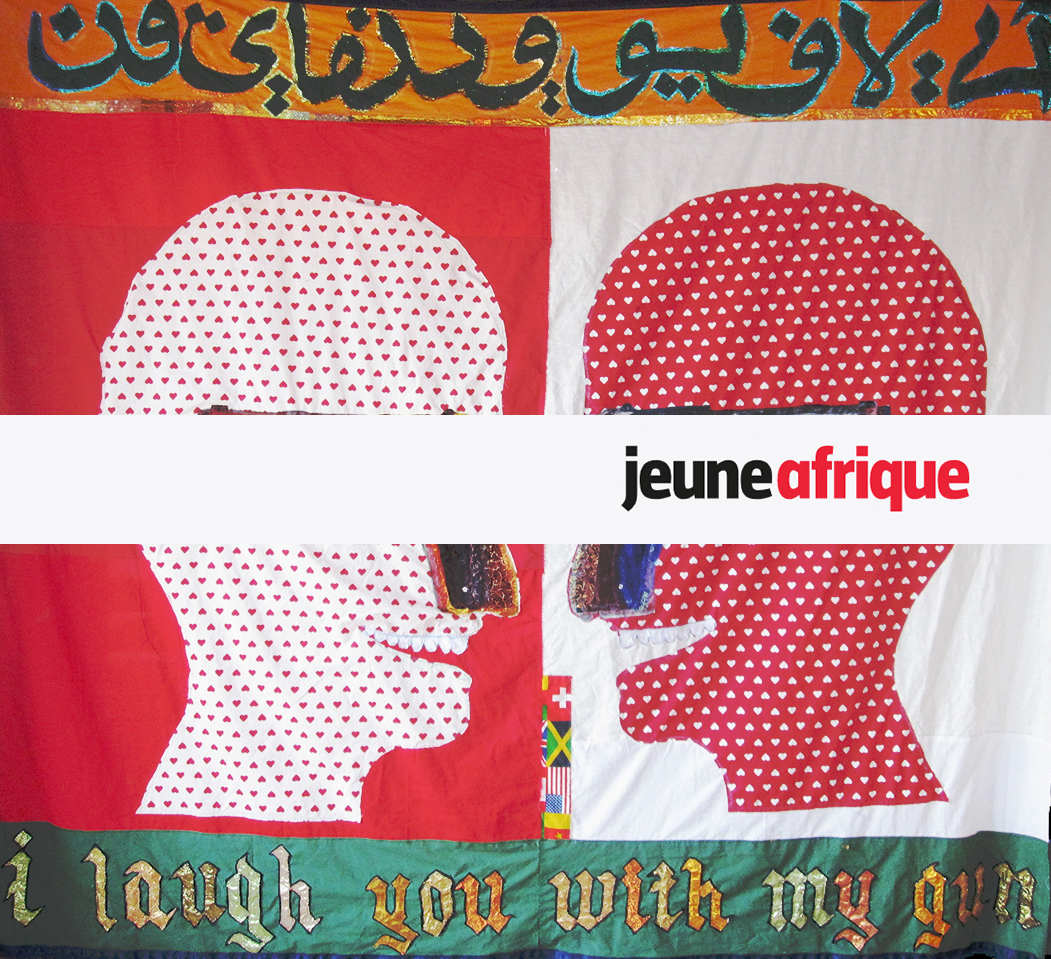
[FR] Le droit-fil de la couture | ART ABSOLUMENT
April 2011
"Hassan Musa est un artiste soudanais polymorphe qui se définit comme un « faiseur d’images » et travaille la peinture sur de grands morceaux de tissus assemblés ; mais il est aussi calligraphe, graveur et illustrateur de livres pour enfants. [...]"
Read the full article by Renaud Faroux here…
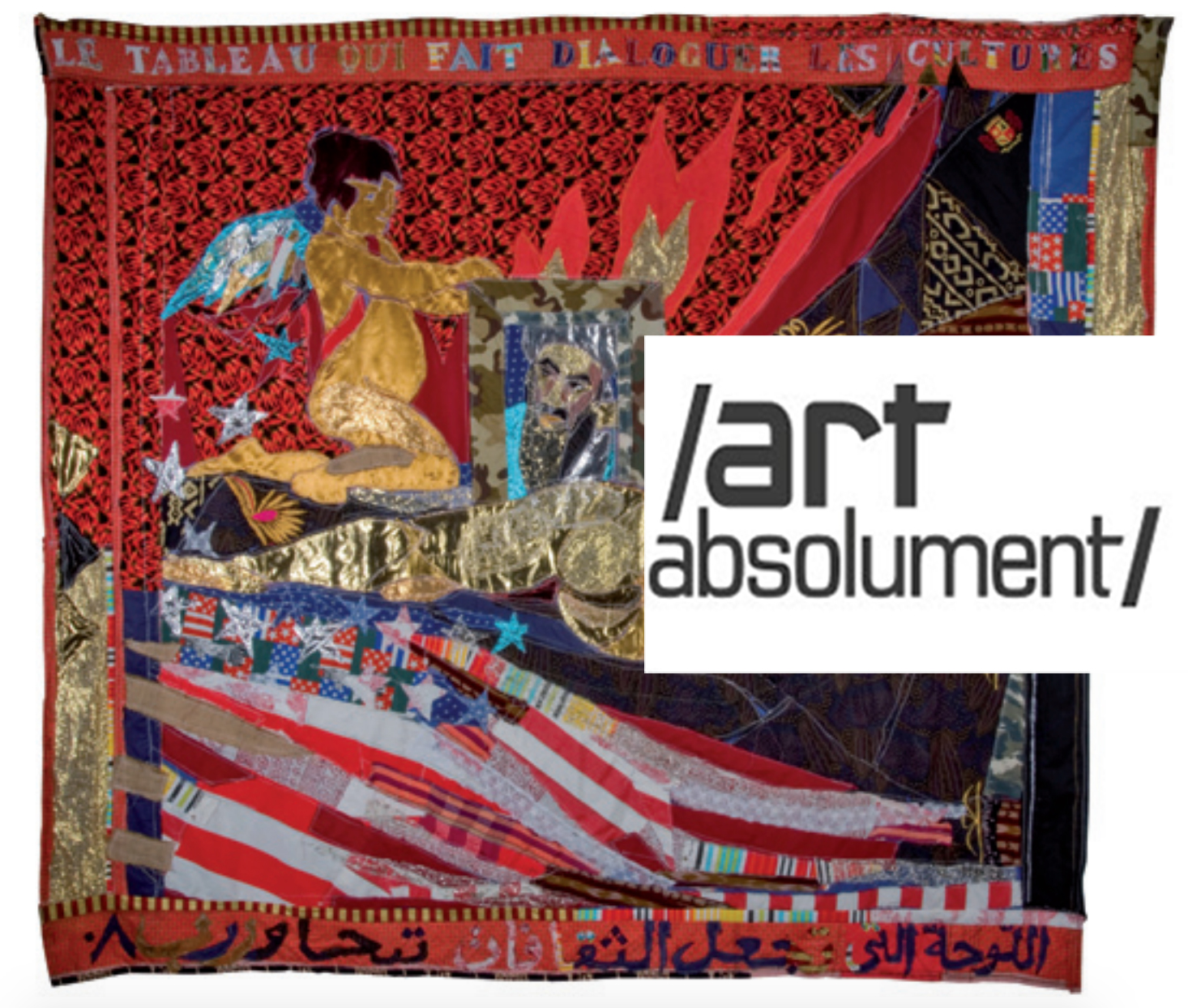
[FR] Images sacrées, images politiques | AFRICULTURES
Nov. 30, 2005
"Peintre, calligraphe, graveur, enseignant et illustrateur de livres pour enfants, l’artiste soudanais Hassan Musa se définit volontiers comme un « faiseur d’images » . Installé dans le sud de la France, il a participé à l’exposition collective Africa Remix où deux de ses oeuvres ont été présentées et remarquées. Retour sur le parcours et le travail d’un artiste généreux et engagé. [...]".
Read the full conversation with Lucie Touya and Thierry William here…
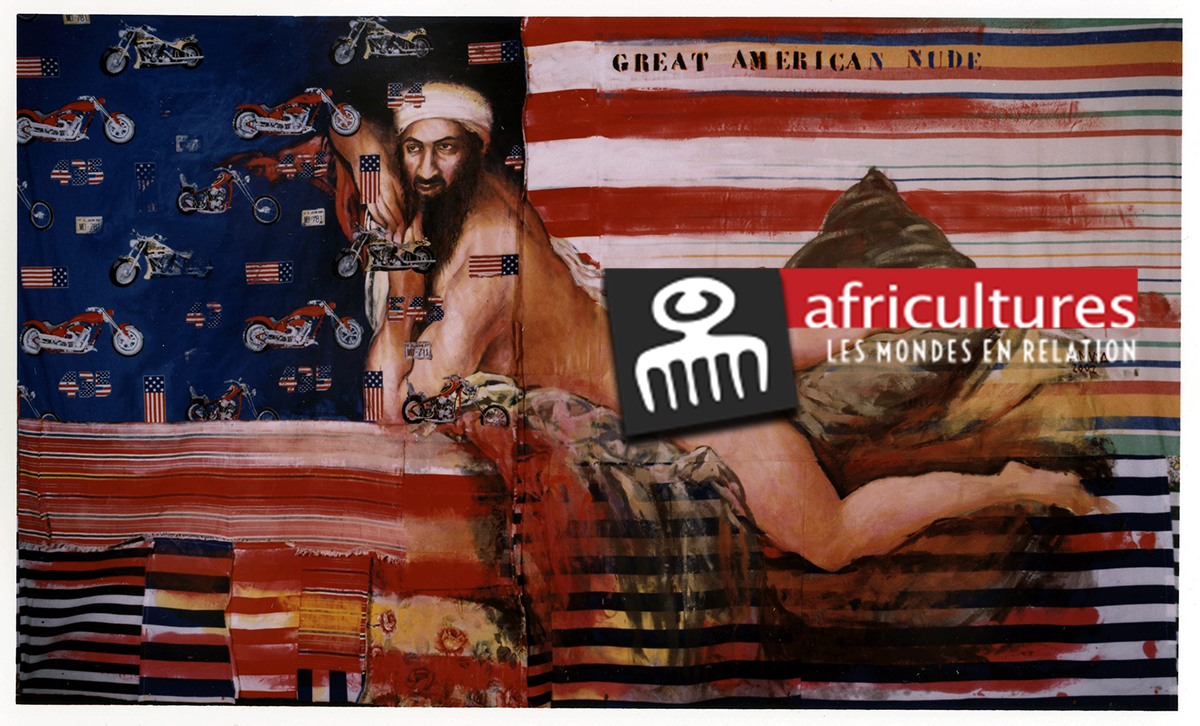
[FR] Qui a inventé les africains? | LES TEMPS MODERNES
April 2002
"Si, en tant qu’artiste, vous voulez participer à l’une de ces grandes manifestations saisonnières qui célèbrent la culture africaine dans les capitales occidentales, vous devez remplir un certain nombre de conditions. D’abord il faut être né quelque part en Afrique, de préférence en Afrique noire. Ensuite, il vaut mieux être accessible, voire résider à proximité d’un lieu géographique pratique par rapport à celui de la manifestation. L’Afrique est trop loin ! [...]".
Read the full article here…
